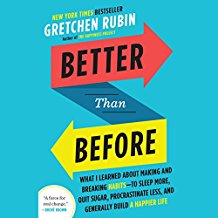 Can reading, and re-reading, and re-re-reading a book make you happy? The answer is certainly yes for me. The book in today’s post didn’t just entertain me; it added a new facet to my understanding of the past, not only for the particular events described but for history in general. I don’t remember when I first read this, but it was probably when I was in high school. I came back to it as an adult and used its story about the ill-fated Richard III as the starting point for the 9th-grade world history class I taught for a number of years. I was reminded of the book recently because of all the hoo-hah around the discovery of Richard’s bones in Leicester, England, and their recent re-interment. Tey’s masterpiece has been dubbed the greatest detective novel of all time (Crime Writers’ Association, 1990), and I would agree with that assessment. You may recall an earlier post in which I said that Dorothy Sayers’ Gaudy Night was the greatest novel of the 20th century; that is only nominally a detective or mystery novel. So I’m not contradicting myself. Here’s my take:
Can reading, and re-reading, and re-re-reading a book make you happy? The answer is certainly yes for me. The book in today’s post didn’t just entertain me; it added a new facet to my understanding of the past, not only for the particular events described but for history in general. I don’t remember when I first read this, but it was probably when I was in high school. I came back to it as an adult and used its story about the ill-fated Richard III as the starting point for the 9th-grade world history class I taught for a number of years. I was reminded of the book recently because of all the hoo-hah around the discovery of Richard’s bones in Leicester, England, and their recent re-interment. Tey’s masterpiece has been dubbed the greatest detective novel of all time (Crime Writers’ Association, 1990), and I would agree with that assessment. You may recall an earlier post in which I said that Dorothy Sayers’ Gaudy Night was the greatest novel of the 20th century; that is only nominally a detective or mystery novel. So I’m not contradicting myself. Here’s my take:A Portrait Puzzle
 Can reading, and re-reading, and re-re-reading a book make you happy? The answer is certainly yes for me. The book in today’s post didn’t just entertain me; it added a new facet to my understanding of the past, not only for the particular events described but for history in general. I don’t remember when I first read this, but it was probably when I was in high school. I came back to it as an adult and used its story about the ill-fated Richard III as the starting point for the 9th-grade world history class I taught for a number of years. I was reminded of the book recently because of all the hoo-hah around the discovery of Richard’s bones in Leicester, England, and their recent re-interment. Tey’s masterpiece has been dubbed the greatest detective novel of all time (Crime Writers’ Association, 1990), and I would agree with that assessment. You may recall an earlier post in which I said that Dorothy Sayers’ Gaudy Night was the greatest novel of the 20th century; that is only nominally a detective or mystery novel. So I’m not contradicting myself. Here’s my take:
Can reading, and re-reading, and re-re-reading a book make you happy? The answer is certainly yes for me. The book in today’s post didn’t just entertain me; it added a new facet to my understanding of the past, not only for the particular events described but for history in general. I don’t remember when I first read this, but it was probably when I was in high school. I came back to it as an adult and used its story about the ill-fated Richard III as the starting point for the 9th-grade world history class I taught for a number of years. I was reminded of the book recently because of all the hoo-hah around the discovery of Richard’s bones in Leicester, England, and their recent re-interment. Tey’s masterpiece has been dubbed the greatest detective novel of all time (Crime Writers’ Association, 1990), and I would agree with that assessment. You may recall an earlier post in which I said that Dorothy Sayers’ Gaudy Night was the greatest novel of the 20th century; that is only nominally a detective or mystery novel. So I’m not contradicting myself. Here’s my take: Many years ago I ran into a granola recipe in the old Gourmet magazine (now gone, alas) called “Sherry’s Granola.” I have followed its basic concept for many years, tweaking it and generalizing it until I can call it my own. Granola is a great kitchen-sink item, and as you’ll see below it’s more of a procedure than a recipe.
Many years ago I ran into a granola recipe in the old Gourmet magazine (now gone, alas) called “Sherry’s Granola.” I have followed its basic concept for many years, tweaking it and generalizing it until I can call it my own. Granola is a great kitchen-sink item, and as you’ll see below it’s more of a procedure than a recipe. You know that warning given about mutual funds and other investments: “Past performance is no guarantee of future returns.” Well, if you’re a regular reader of the blogs on this website you may remember my post over in the food section about the last Cherry Creek Chorale retreat breakfast, which I said was pretty stress-free. I had things done ahead of time and it was almost a little bit boring to be standing around and waiting for the crowds to descend.
You know that warning given about mutual funds and other investments: “Past performance is no guarantee of future returns.” Well, if you’re a regular reader of the blogs on this website you may remember my post over in the food section about the last Cherry Creek Chorale retreat breakfast, which I said was pretty stress-free. I had things done ahead of time and it was almost a little bit boring to be standing around and waiting for the crowds to descend.
 Scribbled on one of the many scraps of paper I accumulate is something from a recent church care group meeting in our home. We get together a couple of times a month to discuss ideas sparked by recent sermons. One of our members mentioned that we humans have the tendency in our thinking to be vague about the problem but specific about the solution, and he gave as an example the above phrase, something he’d gotten from a friend at work.
Scribbled on one of the many scraps of paper I accumulate is something from a recent church care group meeting in our home. We get together a couple of times a month to discuss ideas sparked by recent sermons. One of our members mentioned that we humans have the tendency in our thinking to be vague about the problem but specific about the solution, and he gave as an example the above phrase, something he’d gotten from a friend at work. Man! What’s in the air these days? Nothing much is blooming yet, but I’m having an awful, disgusting, terrible time with my allergies. If I’m not blowing my nose, I’m coughing. I feel horrible. All I can hope for is that whatever it is goes away soon.
Man! What’s in the air these days? Nothing much is blooming yet, but I’m having an awful, disgusting, terrible time with my allergies. If I’m not blowing my nose, I’m coughing. I feel horrible. All I can hope for is that whatever it is goes away soon.
 Another habits principle is that you’re more likely to do what’s convenient and less likely to do what isn’t. It struck me just a day or two ago that I had a tool that I loved, that was extremely convenient and which I could use more: my darling little laptop. You can see in the picture how small it is. [Note: this is a stock image; as with so many other pictures, this one was lost in the website move. And now, as I re-do this post, that little laptop is long gone–I think I’m o the third one now.] I carry it around with me from room to room just as some people carry around their smartphones. [Again, a further note: I certainly now have a smartphone!] A couple of days ago I sat down to pay some bills and realized that I hadn’t balanced the checkbook for some time. I’ve still been using a paper check register to do this, and I thought, Why don’t I use my laptop? I googled “virtual check register” and found something called “checkbook.com.” I also used the strategy of the “clean slate,” another Gretchen Rubin idea. I didn’t bother with going back and checking every transaction since the last time I did the balancing act; I don’t think I’ve ever found a mistake on the bank’s side, so what was the point? The important thing is for me to have some kind of backup information, although I guess it would be fine just to rely on the bank’s online statement. I may re-think the issue in the future, but at least for now I can just enter items online and see the balance computed for me. I’m also going to go ahead and start actually paying the bills online, something I’ve resisted doing for some reason. Why should I go through the inconvenient process of writing out checks, entering them in the register, putting the check and the payment slip in an envelope, hunting up a stamp and a return address label, and then mailing them? Hmmm. As soon as I get finished writing this post I’ll go to the bank website, pay off yesterday’s credit card charges and pay the two bills I have right now. One is a medical bill that will have to be paid by check, but the other is the monthly phone/internet charge, so I can set up online bill pay for that. (I realize that the preceding may sound like I’m still using a quill pen and paying bills with bags of coins, but I’m really trying to become more hip and happening!) I’ve been wanting to establish the habit of keeping up with our finances on a daily or semi-daily basis; the use of a convenient, familiar, well-liked tool will help me do that.
Another habits principle is that you’re more likely to do what’s convenient and less likely to do what isn’t. It struck me just a day or two ago that I had a tool that I loved, that was extremely convenient and which I could use more: my darling little laptop. You can see in the picture how small it is. [Note: this is a stock image; as with so many other pictures, this one was lost in the website move. And now, as I re-do this post, that little laptop is long gone–I think I’m o the third one now.] I carry it around with me from room to room just as some people carry around their smartphones. [Again, a further note: I certainly now have a smartphone!] A couple of days ago I sat down to pay some bills and realized that I hadn’t balanced the checkbook for some time. I’ve still been using a paper check register to do this, and I thought, Why don’t I use my laptop? I googled “virtual check register” and found something called “checkbook.com.” I also used the strategy of the “clean slate,” another Gretchen Rubin idea. I didn’t bother with going back and checking every transaction since the last time I did the balancing act; I don’t think I’ve ever found a mistake on the bank’s side, so what was the point? The important thing is for me to have some kind of backup information, although I guess it would be fine just to rely on the bank’s online statement. I may re-think the issue in the future, but at least for now I can just enter items online and see the balance computed for me. I’m also going to go ahead and start actually paying the bills online, something I’ve resisted doing for some reason. Why should I go through the inconvenient process of writing out checks, entering them in the register, putting the check and the payment slip in an envelope, hunting up a stamp and a return address label, and then mailing them? Hmmm. As soon as I get finished writing this post I’ll go to the bank website, pay off yesterday’s credit card charges and pay the two bills I have right now. One is a medical bill that will have to be paid by check, but the other is the monthly phone/internet charge, so I can set up online bill pay for that. (I realize that the preceding may sound like I’m still using a quill pen and paying bills with bags of coins, but I’m really trying to become more hip and happening!) I’ve been wanting to establish the habit of keeping up with our finances on a daily or semi-daily basis; the use of a convenient, familiar, well-liked tool will help me do that. I’m concentrating right now on building happiness by establishing good habits within the limits of my character. This emphasis has grown out of Gretchen Rubin’s new book that I wrote about yesterday. I’ve been sharing my struggles to put accountability structures in place that will work with my obliger tendency, but I’m realizing that for some habits I’m just going to have to use some other prod or prods. I’ll be writing about these ideas over the next posts. I love putting my mind to a problem and finding a solution once I realize that there is a problem.
I’m concentrating right now on building happiness by establishing good habits within the limits of my character. This emphasis has grown out of Gretchen Rubin’s new book that I wrote about yesterday. I’ve been sharing my struggles to put accountability structures in place that will work with my obliger tendency, but I’m realizing that for some habits I’m just going to have to use some other prod or prods. I’ll be writing about these ideas over the next posts. I love putting my mind to a problem and finding a solution once I realize that there is a problem. Better Than Before: Mastering the Habits of Our Everyday Lives by Gretchen Rubin, Crown Publishers, 2015.
Better Than Before: Mastering the Habits of Our Everyday Lives by Gretchen Rubin, Crown Publishers, 2015. I wrote last week about my struggles to keep promises I make to myself and reach goals I set for myself, as I am a classic Obliger. Those of us who fit into this category need some kind of outside push to get going, and this push is usually described as accountability. But, as I said last week in “The Accountability Conundrum,” it’s sometimes very hard to set up that kind of structure.
I wrote last week about my struggles to keep promises I make to myself and reach goals I set for myself, as I am a classic Obliger. Those of us who fit into this category need some kind of outside push to get going, and this push is usually described as accountability. But, as I said last week in “The Accountability Conundrum,” it’s sometimes very hard to set up that kind of structure.